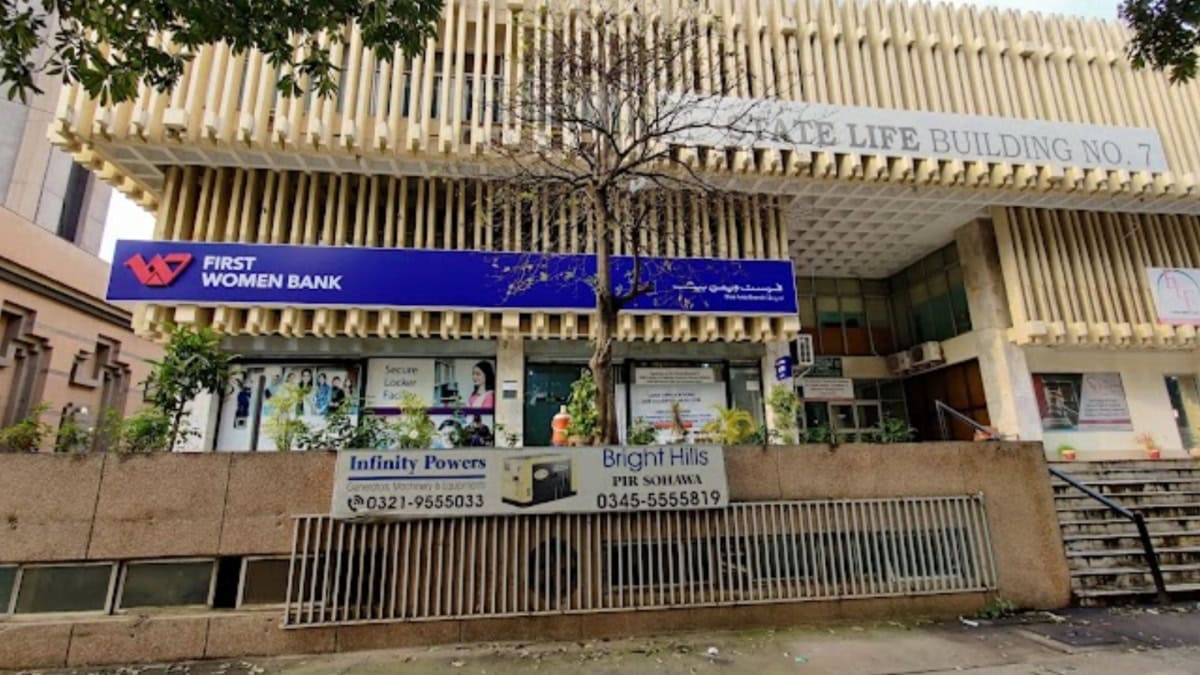Introduction
Worldwide, the estimates for the prevalence of persons with intellectual disabilities, an IQ below 70, vary between 1% and 3% [-], which is 80-234 million people. In the Netherlands, 2.3% of the population (around 400,000 out of 17.4…

Worldwide, the estimates for the prevalence of persons with intellectual disabilities, an IQ below 70, vary between 1% and 3% [-], which is 80-234 million people. In the Netherlands, 2.3% of the population (around 400,000 out of 17.4…
ADDIS ABABA, Oct. 10 (Xinhua) — The death toll from Africa’s ongoing mpox outbreak has surpassed the 2,000 mark since the start of 2024, as the number of cases approaches 200,000, according to the Africa Centers for Disease Control and…

A group of almost 100 former and current Build a Rocket Boy (BARB) developers have published an open letter containing allegations of calamitous mismanagement that purportedly led to the “disastrous handling of redundancies” and “unbearable…

Spider-Man actor Tom Holland has been spotted back on set in Basingstoke.
Holland was photographed in Basing View wearing a green cap and talking to crew.
The English movie star has not been seen since reportedly taking an enforced break from…

Kumail JafferLocal Democracy Reporting Service and
Harry CraigLondon
 WPA Pool/Getty Images
WPA Pool/Getty ImagesThe mayor of London has called on the government to reconsider its immigration rules, which the TSSA transport union said could leave up to 300 Transport for London (TfL) staff at risk of removal.
In July, changes to visa policies were announced, including increased salary thresholds for visa sponsorship, and removal of some transport roles from the “skilled worker” list.
Sir Sadiq Khan told the London Assembly on 9 October that the changes had “left TfL staff in limbo”, according to the Local Democracy Reporting Service.
He said the deputy mayor for transport, Seb Dance, had written to the migration minister to call for the measures to be paused and for TfL staff to be protected immediately.
The Home Office said it would respond to the letter in due course.
They have previously said the government’s immigration white paper, which includes these measures, will “restore order” to immigration and “end dependence on lower-skilled international recruitment”.
Asked about the issue by the Green Party’s London Assembly leader Caroline Russell at Mayor’s Question Time, Sir Sadiq accused the government of “moving the goalposts”.
He added that TfL staff were “unclear about whether they can stay in the UK and continue the important work they do for us”, and that the rules would “inhibit TfL’s ability to carry out its functions”.
After the meeting, Ms Russell told the Local Democracy Reporting Service she had heard from TfL workers who struggled to sleep at night due to the uncertainty.
“One worker, expecting her first child, should be filled with joy, but instead she’s terrified she’ll be forced to leave the country before her baby is even born,” she said.
“They’ve spent thousands of pounds to be here, worked hard to gain qualifications, invested everything and now they’re being told they have no place here. It’s a complete betrayal of the promise they were given.”
 Anadolu via Getty Images
Anadolu via Getty ImagesThe new rules, which took effect on 22 July, raised the salary threshold for visa sponsorship to £41,700 a year for new applicants.
TfL currently pays a starting salary of £31,000 for graduates, with trainee station staff believed to earn between £35,300 and £41,800.
Eddie Dempsey, general secretary of the RMT union, welcomed the mayor’s intervention, adding: “Transport workers who were hired under clear visa arrangements are facing needless uncertainty which should have been avoided.
“These people are doing essential front-line jobs and helping to keep London moving every day.”
Mr Dempsey said last month that 63 RMT members working for the London Underground were facing removal, some as early as November.
However, Maryam Eslamdoust, general secretary of the TSSA union, estimated as many as 300 TfL staff could be affected.
Most of these came to the UK on skilled worker or graduate visas, and currently work in Tube stations as customer service assistants.
A TfL spokesperson said: “We are working with all colleagues affected by the changes to understand whether they have other routes to work in the UK available to them and to support them where possible.”

The federal government has taken another key step in the First Women Bank Limited privatisation process as the Privatisation Commission (PC) Board recommended a reference price to the Cabinet Committee on Inter-Governmental Commercial Transactions (CCoIGCT).
The 240th meeting of the PC Board, chaired by Muhammad Ali, Chairman of the Privatisation Commission, finalized the recommendation that will now move to the Cabinet Committee for review. This marks a major milestone toward finalizing the proposed Government-to-Government (G2G) deal for the sale of First Women Bank Limited.
Incorporated in 1989, FWBL is 82.64% owned by the Government of Pakistan. The International Holding Company (IHC), a nominee of the United Arab Emirates (UAE) government under the Inter-Governmental Commercial Transactions Act, 2022, is being considered as a potential investor.
Once approved by the CCoIGCT, the transaction will progress to formal engagement with the UAE’s nominee. The successful completion of the process is expected to attract new foreign direct investment (FDI) and boost investor confidence in Pakistan’s privatisation program.
In another decision, the PC Board approved a consortium led by Raiffeisen as the top-ranked financial advisor for the privatisation of Hyderabad Electric Supply Company (HESCO) and Sukkur Electric Power Company (SEPCO). Competing consortia included groups led by Baker Tilly, Alvarez & Marsal, and EY (Ernst & Young).
The Board also formed a Negotiation Committee to finalize the Financial Advisory Services Agreement (FASA) with the Raiffeisen-led consortium.
The Privatisation Commission reiterated its commitment to transparency and strategic reforms to strengthen Pakistan’s economic outlook and attract sustainable investment.
This request seems a bit unusual, so we need to confirm that you’re human. Please press and hold the button until it turns completely green. Thank you for your cooperation!

The State Bank of Pakistan (SBP) has injected over PKR 3.3 trillion into the financial system through its latest Open Market Operations (OMOs), aiming to manage liquidity and maintain stability in short-term interest rates.
The central bank conducted both conventional and Shariah-compliant operations. The conventional reverse repo operation saw the injection of PKR 3.258 trillion at a cut-off rate of 11.01% for 7-day and 14-day tenors. Meanwhile, the Islamic Mudarabah-based OMO added PKR 193 billion at a slightly higher rate of 11.11% for a 7-day tenor, indicating stronger demand or tighter liquidity within the Islamic banking sector.
An OMO injection is a key monetary tool that helps banks maintain sufficient cash flow, ensuring smooth market operations and rate stability. Analysts note that the SBP’s large-scale participation highlights its active stance in maintaining liquidity aligned with the ongoing monetary policy.
An official close to the development said, “The SBP’s liquidity support reflects its commitment to balancing monetary stability with sectoral funding needs.”
“The difference in cut-off rates between conventional and Islamic OMOs points to varying liquidity pressures across segments,” said a senior market analyst.

In a forest, death feeds life. A fallen tree doesn’t end a story – it starts another. Beneath damp bark and soft moss, fungi grow, feed, and connect.
Scientists at Kobe University discovered that these fungi don’t just recycle wood; they…